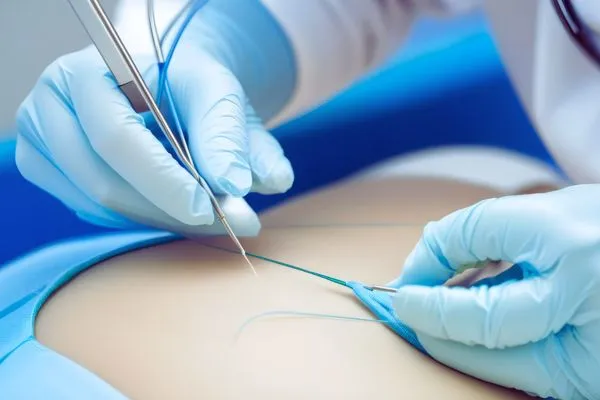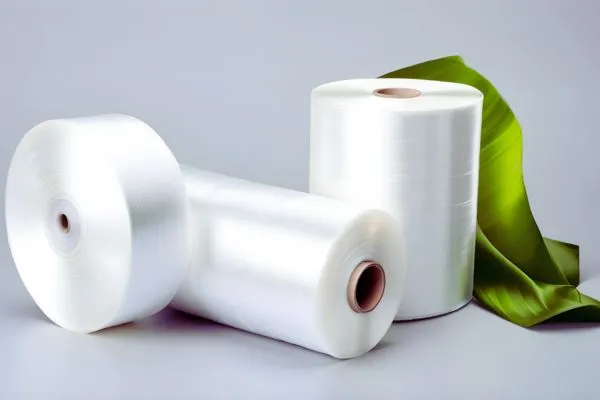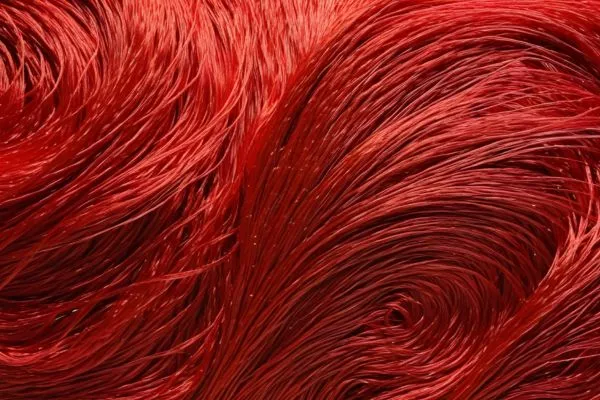Silk, a cloth synonymous with luxury and style, possesses secrets that increase beyond the world of clothing. In this exploration, we embark on a fascinating adventure to find some surprising and particular 10 uses of silk to undoubtedly astonish you. From its surprising programs in the contemporary era to its unconventional role inside the realm of splendor, silk continues to surprise and captivate with its exceptional versatility.
Table of Contents
1. Silk in Space: A Thread to the Cosmos
Silk, a cloth with a wealthy record rooted in human civilization, is ready to embark on a wonderful adventure past Earth’s ecosystem. As scientists and researchers discover modern materials for area exploration, silk has emerged as a fascinating candidate because of its unique residences. Unlike conventional substances, silk offers an exceptional combination of energy, flexibility, and lightness, making it a super contender for various area packages.
One of the primary blessings of silk in area exploration lies in its great electricity-to-weight ratio. This property is vital for designing spacecraft and devices that need to undergo the tough conditions of the outer area. Silk’s herbal resilience makes it an exciting choice for constructing lightweight yet robust structures, ensuring the integrity of spacecraft during their missions.

Moreover, silk’s flexibility is a key asset within the dynamic and unpredictable environment of the area. It can adapt to exclusive shapes and paperwork, taking into consideration the introduction of versatile materials that may be incorporated into various additives of area missions. Whether used within the construction of spacecraft additives, spacesuits, or at the same time as part of progressive space-primarily based technologies, silk’s flexibility opens up new possibilities for engineering solutions within the cosmos.
In addition to its mechanical houses, silk has famous precise thermal characteristics. Space is thought to have intense temperatures, from excessive heat while uncovered to the solar to bitter bloodless in the shadow of celestial bodies. Silk’s ability to modify the temperature, blended with its sturdiness, makes it an exciting alternative for developing protective layers for spacecraft and devices, enhancing its resilience in opposition to the thermal demanding situations encountered in the area.

As humanity continues to push the bounds of area exploration, the integration of silk into the cosmos represents a fascinating intersection of nature and technology. The utilization of this historic fabric in the contemporary realm of space technological know-how not handiest showcases the flexibility of silk however also highlights the importance of drawing proposals from nature to deal with the challenges of the very last frontier. The journey of silk in space isn’t always simply a thread connecting us to the cosmos; it’s far a testament to our ingenuity in harnessing the capacity of Earth’s herbal wonders for the exploration of the outstanding unknown.
2. Surgical Silk: The Healing Touch
In the tricky world of clinical science, the role of surgical silk stands as a testament to the sensitive balance between tradition and innovation. A time-venerated material, silk has long been interwoven into the cloth of surgical processes, playing a pivotal role in the recovery technique. The use of surgical silk dates back centuries, locating its roots in historic civilizations wherein its natural houses had been harnessed for sutures and wound closure.
Silk’s wonderful characteristics have made it a staple in surgical operation. Its inherent energy, suppleness, and biocompatibility make it a perfect preference for sutures, making sure that the healing technique is secure and seamless. As surgeons delicately navigate the human body’s complexities, the gentle contact of surgical silk promotes the most fulfilling wound healing while minimizing the threat of negative reactions.

The current medical panorama continues to leverage the flexibility of surgical silk. Technological advancements have allowed for the development of finely crafted silk sutures that offer now not best strength and flexibility but also reduce tissue trauma. This delicate but resilient material is particularly properly suitable for intricate surgical procedures in which precision is paramount.
3. Silk-Coated Sensors: Technology Meets Luxury
Silk-covered sensors represent a charming convergence of technology and luxury, seamlessly mixing modern-day capability with the timeless elegance of silk. These sensors, commonly employed in various digital devices and wearables, undergo a meticulous system wherein a skinny layer of silk is delicately carried out to their surfaces. This modern method no longer effectively serves as a protecting protect for the sensors, enhancing their sturdiness; however, it additionally introduces a hint of opulence to the regularly utilitarian global of technology. The silky texture now not only contributes to a cultured aesthetic but also brings tactile pleasure to the person’s experience, transforming the interplay with gadgets into an extrasensory and steeply-priced affair.

Beyond the classy appeal, the silk coating offers sensible advantages. Silk is understood for its biocompatibility, making it a perfect cloth for wearables that come into contact with the skin. This compatibility reduces the risk of infection or pain, enhancing the consumer’s typical experience. As technology continues to seamlessly integrate into our day-by-day lives, the marriage of silk and sensors exemplifies how innovation can coexist harmoniously with luxury, introducing a brand new era in which our devices no longer only perform flawlessly but also resonate with an experience of sophistication and fashion.
4. Silkworm Silk Farms: Sustainable Silk Revolution
Silkworm silk farms constitute a pivotal player in the sustainable silk revolution, ushering in moral and environmentally conscious practices inside the silk industry. Traditionally, the production of silk involved the boiling of silkworm pupae in their cocoons, resulting in damage to the pupae and environmental concerns. In response to these problems, silk farms are now aware of cruelty-loose strategies by allowing the silkworms to finish their existence cycle and end up moths, ensuring the moral treatment of those bugs. This shift no longer most effectively aligns with growing purchaser needs for ethically sourced merchandise; however, it additionally contributes to the discount of environmental effect, as silk farming becomes an extra sustainable and ecologically pleasant industry.

Moreover, the sustainable silk revolution extends past moral practices to encompass eco-friendly farming techniques. Many silk farms are adopting natural and included pest control methods to limit the usage of harmful chemicals and promote biodiversity. By prioritizing sustainable sericulture, these farms aren’t most effective in maintaining the delicate stability of ecosystems however additionally presenting customers with silk merchandise that is not only steeply-priced but also guilt-loose. The emergence of silkworm silk farms as proponents of sustainability marks a good-sized stride in the direction of a more accountable and environmentally pleasant silk industry, captivating clients who are trying to find each satisfactory and conscience of their shopping decisions.
5. Silk for Sound: The Melody of Threads
Silk, a costly and sensitive cloth, has long been associated with beauty and refinement. However, in the captivating convergence of lifestyle and technology, silk is now locating a new dimension as it resonates with the concord of sound. “Silk for Sound: The Melody of Threads” represents a charming exploration where the ancient artistry of silk meets the contemporary realm of tune.
This progressive intersection reveals how silk threads, whilst strategically manipulated, can produce exceptional sounds, developing a unique auditory enjoyment. As craftsmen and technologists collaborate to weave collectively the worlds of textile and audio, “Silk for Sound” no longer best showcases the versatility of silk but also introduces a sensory adventure in which the tactile splendor of material intertwines with the enchanting notes of a melodic composition.

The Melody of Threads assignment exemplifies the fusion of creative expression and medical ingenuity in this harmonious marriage of expertise and innovation. By integrating sensors within silk fabric and leveraging advancements in the wearable era, the threads themselves emerge as musical devices. As individuals interact with those cloth-based gadgets, they end up creators and performers, immersing themselves in an intimate and interactive musical revel. “Silk for Sound” goes past the visual and tactile attraction of silk, transforming it into a medium that engages the senses on a deeper degree, inviting fans to explore the rich tapestry of sound woven into this historic but ever-evolving cloth.
6. Biodegradable Silk: Nature’s Gift to the Environment
Biodegradable silk, frequently hailed as nature’s gift to the surroundings stands proud as a superb material that seamlessly combines energy, versatility, and eco-friendliness. Produced through numerous silk-producing organisms including spiders and silkworms, this herbal fiber possesses precise residences that make it an attractive answer within the quest for sustainable substances. Unlike conventional artificial fibers, biodegradable silk decomposes obviously, contributing to a discount in environmental impact. Its biocompatibility extends past its cease-of-life characteristics; silk production includes fewer environmental resources than many artificial substances, making it a renewable and environmentally accountable preference. The exploration and usage of biodegradable silk in numerous industries reflect a dedication to harmonizing human innovation with the resilience and sustainability inherent in nature.

As a biodegradable cloth, silk offers a promising alternative to standard plastics and artificial textiles that regularly contribute to pollutants and ecological pressure. The decomposition of silk fibers into non-poisonous elements represents a closed-loop cycle wherein nature can correctly reintegrate its components into the environment. Innovations in biodegradable silk programs, from green packaging to sustainable textiles, exemplify the ability of this fabric to mitigate the environmental effects of human sports. Embracing biodegradable silk now not the handiest aligns with the ideas of the circular economic system and sustainable practices however, additionally underscores the significance of studying from and taking part in the natural world to deal with present-day environmental demanding situations.
7. Silk in Sports: From the Runway to the Racetrack
Silk’s breathability and moisture-wicking homes have brought about its incorporation into the world of sports clothing. Athletes now benefit from the inclusion of silk-infused fabrics, enhancing their overall performance at the same time as bringing a touch of luxury to the sector or tune.

8. Silken Gardens: A Natural Pest Deterrent
The herbal resistance of silk to pests is finding practical programs in agriculture. Silk netting is being employed to guard flora and vegetation, imparting a green opportunity to traditional pesticides and contributing to sustainable farming practices.

9. Silk and Sleep Technology: The Pillow Revolution
The advantages of silk amplify beyond the dresser into our bedrooms. Silk pillowcases, identified for their beauty and fitness benefits, are gaining popularity. These pillowcases sell better pores and skin and hair health, raising the general sleep enjoyment for the ones seeking a touch of luxury in their nightly ordinary.

10. Silk as Art: Fiber Sculptures and Installations
Artists are pushing the boundaries of creativity with silk as their chosen medium. Fiber sculptures and installations showcase the flexibility and beauty of silk, blurring the strains between style and art. These silk creations serve as a testament to the fabric’s potential to go beyond traditional limitations and captivate us in sudden methods.

Conclusion:
As we conclude our exploration, it becomes glaring that silk’s adventure extends far beyond the style runway. We’ve witnessed its integration into area exploration, seen it revolutionize scientific practices, and marveled at its position in technological improvements. From sustainable farming to enhancing our auditory studies, silk continues to unveil its wonders, proving that its beauty and software are, in reality, boundless. The ten precise makes use of We’ve Got Exposed display that the attraction of silk isn’t restrained to aesthetics; it is a fabric that continually surprises and enriches our lives in methods we may also by no means have imagined.

Mahedi Hasan working as an Executive (Fabric Marketing) at Pengnuo Group. Graduated with B.Sc. in Textile Engineering. Before was a Top Rated content writer at Upwork, and Level 02 Seller at Fiverr, Level 02 Publisher at Ezoic. Very passionate about content writing, SEO practice, and fashion website designing. Highly Experienced fashion writer for the last 4+ years. Have extensive 7 years of experience in the wholesale clothing business.
